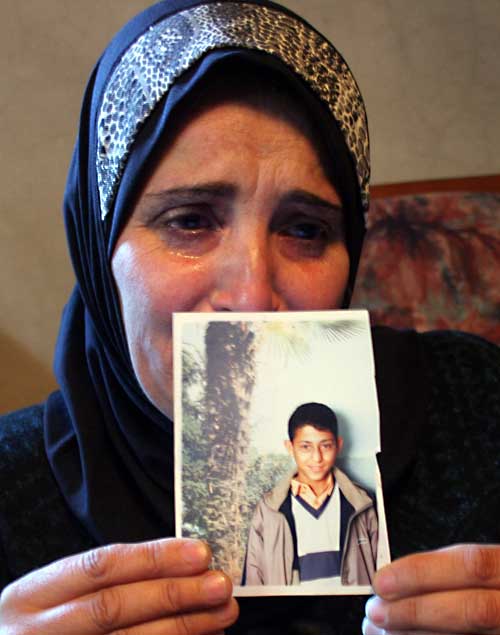Bombers strike in Israel for first time in over a year

Your support helps us to tell the story
From reproductive rights to climate change to Big Tech, The Independent is on the ground when the story is developing. Whether it's investigating the financials of Elon Musk's pro-Trump PAC or producing our latest documentary, 'The A Word', which shines a light on the American women fighting for reproductive rights, we know how important it is to parse out the facts from the messaging.
At such a critical moment in US history, we need reporters on the ground. Your donation allows us to keep sending journalists to speak to both sides of the story.
The Independent is trusted by Americans across the entire political spectrum. And unlike many other quality news outlets, we choose not to lock Americans out of our reporting and analysis with paywalls. We believe quality journalism should be available to everyone, paid for by those who can afford it.
Your support makes all the difference.Police were on high alert through southern Israel yesterday after a woman was killed in a Palestinian suicide attack which two armed factions claimed had been made possible by the breach in the Egypt-Gaza border 12 days ago.
The Israeli victim died and 11 others were injured – one seriously – when a suicide bomber blew himself up in a busy shopping area in this southern desert town, which is best known for the secretive nuclear installation a few miles away. But a second bomber was shot dead by police before he could detonate his explosives vest.
Responsibility for the suicide bombing – the first in Israel for over a year – was claimed by an offshoot of the al-Aqsa Martyrs Brigade in Gaza, which is loosely linked with Fatah. It said it had carried out the attack with the Popular Front for the Liberation of Palestine, and a hitherto unknown group, the United Popular Brigade.
But there was growing confusion last night as the Israeli police and army declined to confirm the provenance of the bombers. Meanwhile, Reuters quoted a Hamas source as saying the bombing had been organised by the Islamic faction's military wing and that the perpetrators had come from Hebron rather than Gaza. If true, it would be the first Hamas suicide bombing in Israel since 2004.
The Israeli authorities had warned that militants entered Egypt after Hamas blew up the southern Gaza border wall on 23 January, and Egypt reported in the past few days that it had arrested more than a dozen Palestinians carrying weapons and explosives in the Sinai peninsula, which also has a long border with Israel. A Palestinian died and more than 40 Gazans and Egyptians were hurt in exchanges of fire between Hamas and Egyptian forces as Egypt reclosed the border at Rafah yesterday.
The second bomber at Dimona – injured when the first blew himself up – was shot in the head by a police chief inspector, Kobi Mor, after a doctor and a lawyer working locally had separately rushed out to help the man before seeing that he was wearing an undetonated explosives vest. Inspector Mor, who is part of a new unit aimed at cross-border drug traffickers, said: "People were pointing at the place. I saw the wounded terrorist trying to move his hand. I shot and then I saw the hand twitching. I shot him with four bullets." The explosives belt was subsequently removed from the body of the second bomber by remote-controlled robot.
Moshe Malka, the lawyer, who had been working nearby, said: "I ran to the scene and I saw parts of bodies, a head, a leg. There were pieces of metal that the explosives had sent 60 metres away. I saw this man lying on the ground who was wearing a yellow jacket and I tried to pull it off to give first aid, and then I saw that he was wearing explosives. I shouted to people to step back and that there might be another explosion."
Four hours after the mid-morning blast, as rescue workers and police forensics experts collected remaining body fragments and sifted through clothing, the body of the second bomber lay facing upwards on the ground between a national lottery stall and a store selling tobacco, his head heavily caked in blood and what appeared to be an open ID card on the chest.
A head and a leg, bare above the sock, presumably belonging to the first bomber, lay close by. A heavy splash of blood four or five metres high on a building behind the lottery stand attested to the lethal force of the blast.
The Israeli Prime Minister, Ehud Olmert, said during a heated Knesset session to debate the Winograd report on the 2006 Lebanon war that the Dimona bombing reinforced his contention that "constant war is being conducted in the south of the country, a war of terror against us and our war against terror". He added: "This war will continue, terrorism will be hit. We will not relent."
Mr Olmert's spokesman, Mark Regev, said that talks with the Palestinian President Mahmoud Abbas, who condemned the bombing, would continue. "We will raise this issue of fighting terrorism with the Palestinians," he said.
The bombers had earlier been named in Gaza yesterday as Luay Laghwani, 22, and Moussa Arafat, 24.
Subscribe to Independent Premium to bookmark this article
Want to bookmark your favourite articles and stories to read or reference later? Start your Independent Premium subscription today.
Join our commenting forum
Join thought-provoking conversations, follow other Independent readers and see their replies
Comments